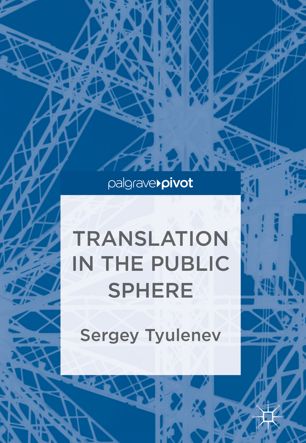

Most ebook files are in PDF format, so you can easily read them using various software such as Foxit Reader or directly on the Google Chrome browser.
Some ebook files are released by publishers in other formats such as .awz, .mobi, .epub, .fb2, etc. You may need to install specific software to read these formats on mobile/PC, such as Calibre.
Please read the tutorial at this link: https://ebookbell.com/faq
We offer FREE conversion to the popular formats you request; however, this may take some time. Therefore, right after payment, please email us, and we will try to provide the service as quickly as possible.
For some exceptional file formats or broken links (if any), please refrain from opening any disputes. Instead, email us first, and we will try to assist within a maximum of 6 hours.
EbookBell Team

5.0
30 reviewsThis book brings together the study of translation with public sphere theory, in order to discuss social communication as it really happens. Through illuminating examples and case studies, translation is shown to be a mediating mechanism in all public debate conducted both within one society and between societies. The author offers a detailed discussion of the kinds of translation most relevant to public sphere communication and their properties. Throughout, he argues persuasively that it is impossible to study the public sphere without taking account of translation in it, and that the interaction between the public as a collective inevitably involves translation. Further, the author suggests new methodological approaches to studying not only translation in the public sphere but public debate itself as a kind of translation. Building on the achievements of both the public sphere scholarship and Translation Studies, this work fills a significant lacuna in existing literature and will set the agenda for future studies at the intersection of the two. It will provide an invaluable resource for scholars and students of the public sphere and translation, as well as academics in the broader fields of sociology, political science and communication.